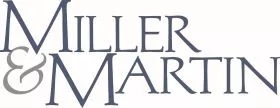The "It Ain't Right Rule
Forcing shippers to pay twice, it could be argued, violates the most basic of legal doctrines: I call it the "it-ain't-right" rule. Once we get through all of the legal lingo and the archaic transportation expressions, judges, colleagues, adversaries, and others may often think or say, "That may be true, but it ain't right". It can be a very compelling argument when a shipper claims to be the innocent victim of a now-insolvent broker or freight forwarder.
As a result, I have spent some time trying to make certain that everyone understands that motor carriers should be paid by somebody when they have successfully delivered freight moving in interstate commerce. I believe that one of the most important concepts in transportation law is to facilitate the efficient and fast movement of freight throughout the United States (and elsewhere). If carriers are forced to stop and negotiate every contract item with every shipper, broker, interline hauler, freight forwarder, and 3PL in the freight movement chain, our economy might grind to a halt&.or at least slow down a bit. And from what I gather, we do not need any more economic slow down.
The Ninth Circuit Makes A Shipper Pay Twice
So every now and then, I am happy to report that a federal court somewhere overlooked the "it-ain't-right" rule and applied the law. In Oak Harbor Freight Lines, Inc. v. Sears Roebuck & Co., the Ninth
Circuit Court of Appeals agreed with a Washington state lower federal court in requiring a shipper to pay carrier even though it had already paid a broker for the freight charges.
Here are the basic facts. NLC is a broker that entered into a written broker-carrier agreement with Oak Harbor. Oak Harbor is a licensed motor carrier. The agreement, among other things, had the following sentence: "SHIPPER agrees to pay Carrier [Oak Harbor] within a predetermined time from date of receipt regardless whether or not BROKER/SHIPPER has been paid for movement...". Oak Harbor hauled both inbound and outbound freight. All freight moved on a bill of lading. On inbound freight, Oak Harbor used its own bills of lading which designated Sears as the consignee and Section 7 was marked "collect". In the "bill to" section, the phrase "Third Party Billing" was written. For outbound freight, Sears prepared its own bill oflading Each "Sears" bill of lading was marked "PREPAID" and identified NLC as the "bill to" agent for Sears.' The Sears bill of lading also incorporated the provisions of the Uniform Straight Bill of Lading.
Things got bad when Sears fired its broker, NLC, and Oak Harbor was looking at over $400,000.00 in unpaid freight charges. Sears and NLC only pointed the finger at each other as to the responsible party for the charges. By the time Oak Harbor filed suit, Sears had already paid NLC over $200,000.00. The motor carrier sued both Sears, the shipper, and NLC, the broker.
The appellate court agreed with the trial court that both Sears and NLC were liable to Oak Harbor. On the outbound shipments, Sears is listed as the shipper and the bills of lading were marked "PREPAID", revealing an agreement that Sears was liable for the charges. Conversely, on the inbound shipments, Sears was the consignee and the bills of lading were marked "collect", not prepaid. Again, the bills of lading, the contracts between the parties, confirmed the agreement that Sears would be liable for the payment of freight charges.
Sears did not give up though. Undaunted, it raised the "it-ain't right" rule, also known as the doctrine of equitable estoppel. Sears argued that it had paid a majority of the freight charges to NLC and, as an innocent party, should not be required to pay twice. The Ninth Circuit appellate court followed a few other appellate courts which say that a shipper should bear the risk when it chooses to pay for freight charges through a broker rather than directly to a carrier. The court reasoned that the shipper, and not the carrier, is in the best position to avoid liability for double payment by dealing with a reputable broker orfreight forwarder, by contracting with the carrier to eliminate the shipper's double liability or by paying the carrier directly.
Even so, many courts continue to follow the "it-ain't-right" rule. I think the key to the court's decision in the Sears case is a lesson to us all. Paperwork! The carrier in the Sears decision had the proper paperwork to require Sears to pay the freight charges even if Sears had already paid the broker. On outbound shipments, the bills of lading listed Sears as the shipper and were marked PREPAID as evidence that the shipper was liable for the charges absent some other agreement. And for inbound shipments, Sears was the consignee and the bills of lading were marked "Collect". Because the carrier's paperwork was clear, the Sears court had an easier time forcing both Sears and the broker to pay the freight charges.
Lessons to be Learned
- Pay attention to your bills of lading. Look for the terms "Prepaid" or "collect" and make certain that you are clear on who is responsible for the payment of your charges.
- If you are worried about a broker or freight forwarder's ability/willingness to pay your freight charges, make sure the shipper is going to pay you. Check the bill of lading language, sign a separate written agreement with the shipper, or require that the shipper pay you directly.
The content of this article is intended to provide a general guide to the subject matter. Specialist advice should be sought about your specific circumstances.

